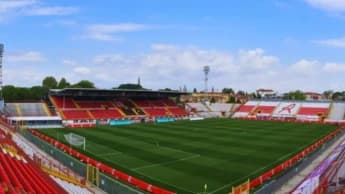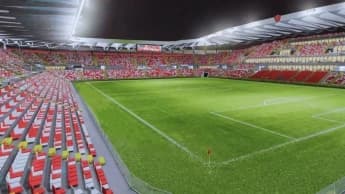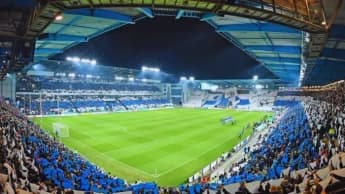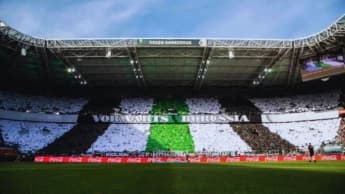Red Bull Arena: The Heartbeat of Leipzig’s Football Renaissance
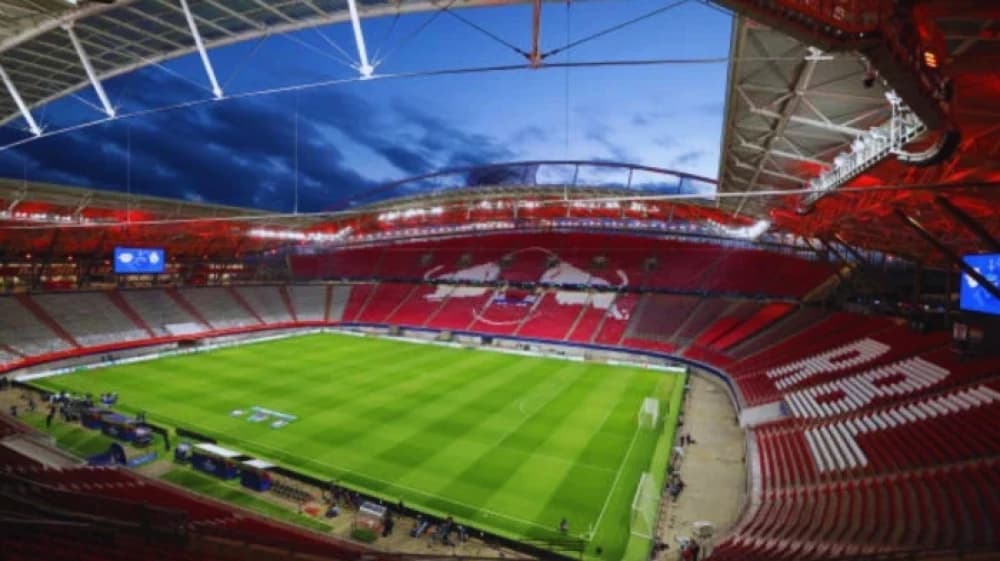
From its historic roots as the Zentralstadion to its modern incarnation as Red Bull Arena, this iconic stadium has become a symbol of Leipzig’s footballing revival and a hub for world-class sport and entertainment.
Introduction
Red Bull Arena, located in Leipzig, Saxony, Germany, is the largest football stadium in Eastern Germany and a cornerstone of the region’s sporting culture. Since its opening in 2004, it has served as the home of Bundesliga club RB Leipzig, a team that has risen rapidly through the ranks of German football. With a seating capacity of over 42,000, the stadium is a modern, state-of-the-art venue that combines cutting-edge design with a rich historical legacy.
Originally built to replace the old Zentralstadion, which was once one of the largest stadiums in Europe, Red Bull Arena has become a symbol of Leipzig’s footballing resurgence. It has hosted major international tournaments, including the 2006 FIFA World Cup and the 2005 FIFA Confederations Cup, as well as countless memorable domestic and European matches. Beyond football, the stadium has also welcomed world-renowned artists for concerts, cementing its status as a multipurpose entertainment hub.
History and Construction
Origins and Reconstruction
The story of Red Bull Arena begins with the old Zentralstadion, which was constructed in 1956 and could hold up to 100,000 spectators. At its peak, it was one of the largest stadiums in Europe, but by the late 20th century, it had fallen into disrepair. The need for a modern, safer, and more functional venue led to the decision to rebuild the stadium within the original structure’s bowl, preserving its historical essence while integrating contemporary design and technology.
Construction of the new stadium began in 2000, with an estimated budget of €116 million. The project involved excavating the old structure and building a modern, fully covered stadium within its footprint. The new design prioritized fan comfort, safety, and accessibility, meeting FIFA and UEFA standards for international competitions.
The stadium officially opened on 17 November 2004 with an international friendly match between Germany and Cameroon. This marked the beginning of a new era for Leipzig’s footballing infrastructure, as the stadium quickly gained recognition as a world-class venue.
2005 FIFA Confederations Cup and 2006 FIFA World Cup
Shortly after its inauguration, Red Bull Arena (then known as Zentralstadion) was selected as one of the host venues for the 2005 FIFA Confederations Cup. It hosted three matches, including the third-place playoff, which showcased its ability to handle large-scale international events.
The stadium’s biggest moment came in 2006, when it was chosen as the only venue in Eastern Germany to host matches for the FIFA World Cup. It staged four group-stage matches and a Round of 16 fixture, welcoming teams and fans from around the globe. The tournament solidified Red Bull Arena’s reputation as a premier football venue and brought international attention to Leipzig.
Domestic Football and RB Leipzig’s Rise
After the World Cup, the stadium became the home of FC Sachsen Leipzig, though their tenure was short-lived due to financial difficulties. In 2009, Austrian energy drink manufacturer Red Bull acquired the playing license of SSV Markranstädt and rebranded the club as RasenBallsport Leipzig (RB Leipzig). The club quickly identified the stadium as its home ground, and in 2010, it was renamed Red Bull Arena following a sponsorship agreement.
RB Leipzig’s rapid ascent through the German football leagues brought renewed energy to the stadium. By the 2016-17 season, the club had reached the Bundesliga, and Red Bull Arena became a fortress for the team. The stadium’s atmosphere, combined with RB Leipzig’s success, has made it one of the most vibrant venues in German football.
Architectural and Design Features
Red Bull Arena is a masterpiece of modern stadium design, blending functionality with aesthetic appeal. Its key features include:
-
Capacity: Over 42,000 seats, with a steep, bowl-shaped design that ensures excellent sightlines and an intimate atmosphere.
-
Roof Structure: A fully covered roof supported by steel trusses, providing protection from the elements while allowing natural light to filter through.
-
Pitch: A hybrid grass surface with advanced irrigation and undersoil heating systems, ensuring optimal playing conditions year-round.
-
VIP and Hospitality Areas: Modern lounges and corporate boxes offering premium experiences with panoramic views of the pitch.
-
Technology: High-definition video screens, LED lighting, and state-of-the-art sound systems enhance the matchday experience.
-
Accessibility: Designed with inclusivity in mind, the stadium features ramps, elevators, and designated seating for disabled spectators.
The stadium’s exterior is illuminated with dynamic LED lighting, which can be customized to match RB Leipzig’s colors on matchdays, creating a striking visual spectacle.
Atmosphere and Fan Experience
Red Bull Arena is renowned for its electric atmosphere, driven by the passionate support of RB Leipzig’s fans. The Nordkurve, the standing terrace behind one of the goals, is the heart of the stadium, where the most vocal supporters gather to create a wall of noise and color. Choreographed displays, chants, and songs amplify the intensity, making it one of the most intimidating venues for visiting teams.
The stadium’s design enhances the fan experience, with steep stands bringing spectators closer to the pitch and amplifying crowd noise. Modern amenities, including a variety of food and beverage options, merchandise shops, and interactive fan zones, ensure a comfortable and enjoyable matchday experience.
Notable Events and Moments
Red Bull Arena has hosted numerous historic events, including:
-
2005 FIFA Confederations Cup: Hosted three matches, including the third-place playoff.
-
2006 FIFA World Cup: Hosted four group-stage matches and a Round of 16 fixture.
-
RB Leipzig’s Bundesliga Debut (2016-17): The club finished second in their first Bundesliga season, securing Champions League qualification.
-
UEFA Champions League Nights: Memorable victories, including a 3-0 win over Tottenham Hotspur in the 2019-20 Round of 16, which sent RB Leipzig to their first-ever quarter-final.
-
Concerts and Cultural Events: The stadium has hosted world-renowned artists, further solidifying its status as a multipurpose venue.
Records and Legacy
Red Bull Arena has been the stage for several record-breaking moments:
-
RB Leipzig’s Rapid Rise: The club’s ascent from the lower leagues to the Bundesliga and European competitions has been one of the most remarkable stories in modern football.
-
Attendance Records: The stadium regularly sells out for Bundesliga and European matches, with an average occupancy rate exceeding 90%.
-
Historic Wins: Memorable victories, such as the 5-0 thrashing of Bayern Munich in the 2021 DFB-Pokal, have cemented the stadium’s reputation as a fortress.
The stadium’s legacy extends beyond football, as it has become a symbol of Leipzig’s cultural and sporting revival. Its ability to host major international tournaments, top-tier domestic matches, and large-scale concerts has made it a cornerstone of the city’s identity.
Looking Ahead
Red Bull Arena continues to evolve, with plans for further renovations and upgrades to enhance the fan experience and accommodate RB Leipzig’s growing fanbase. As the club aims to establish itself as a permanent force in European football, the stadium will remain at the heart of its ambitions.
Conclusion
Red Bull Arena is more than just a football stadium; it is a symbol of Leipzig’s footballing renaissance and a testament to the city’s passion for sport and entertainment. From its historic roots as the Zentralstadion to its modern incarnation as a world-class venue, the stadium has played a pivotal role in shaping the identity of RB Leipzig and the broader football landscape in Germany. With its state-of-the-art facilities, electric atmosphere, and rich history, Red Bull Arena stands as one of Europe’s most iconic football venues.



